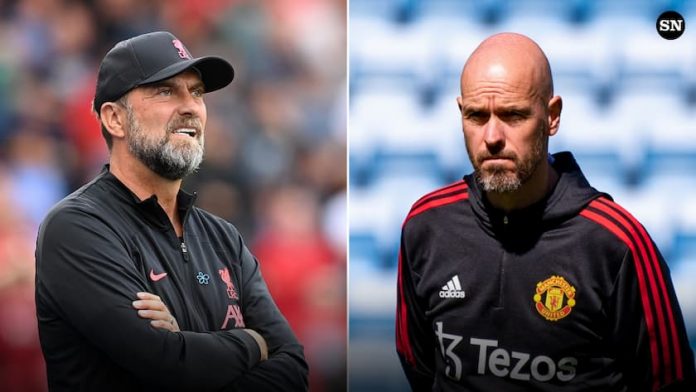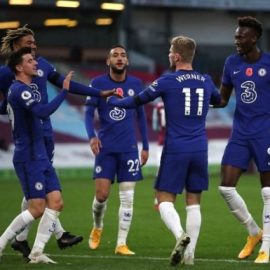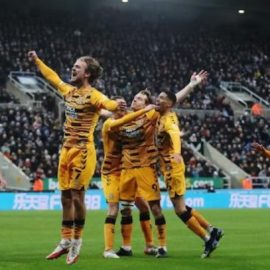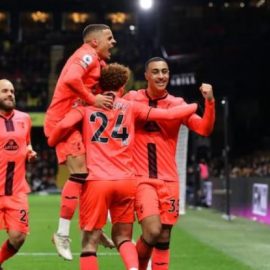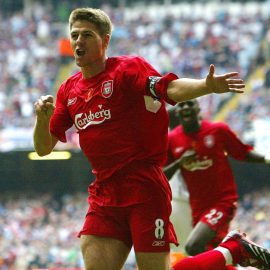Football is a polar game. Attack versus defence. Them versus us. Those who watch football are defined by the teams that they follow, the colours that they wear and the seat in which they sit. Adopting any middle ground is distinctly frowned upon. In the local election season, a floating voter is a calculating bastion of dispassionate common-sense. In the football season, he is an outsider, a superficial namby-pamby who doesn’t have the guts to nail his colours to a mast. Even having a “second team”, or being too fond of the national side is seen as a diluting down of one’s true calling, aside from the fleeting amnesty of World Cup hysteria.
This state of affairs has a distinct effect on the experience of watching a game of football. It might be acceptable to attend the cinema with no particular interest in how the film ends, but to do so at a football ground is interloping on sacred territory, akin to attending a funeral having never met the deceased.
There are many examples within football of the disdain for impartiality.
Despite his many indiscretions, Roy Keane’s most irredeemable moment at Manchester United was his suggestion that his own paying customers’ matchday experience was more dependent on the quality of prawn sandwiches than the events on the field of play. To such a partisan man, indifference was the most perplexing concept of all.
Another case in point is found at the Putney End at Craven Cottage. It is intended to be an area where visiting tourists, mainly from countries where being partisan isn’t so obligatory, can watch a football match. However, rather than such an enterprise is frequently a subject of significant derision from the big boys of the Premier League, who puff out their chests, “take over” the away end and delight in reminding the assembled middle-management stockbrokers of how embarrassed they must be that they can’t summon enough suitably partisan troops.
Indeed, football seasons are punctuated by games, such as local derbies, where the distinction is most acute. A particular derision is reserved for teams whose style is most distinct from our own, be it because they pass it longer, shorter or not at all. That’s how it is. And by and large that’s how we like it.
So, how does it work when the partisan shield is removed? A game where your team, your seat and your colours are nowhere to be seen. Can we just switch “supporting” off and actually enjoy the material worth of a game of football?
The 2014 FA Cup Final was to be the place for me to give it a try. Owing to a combination of a burgeoning realisation that my own team, Norwich City, are increasingly unlikely to ever grace such an occasion and the generosity of a friend of a friend who works within the murky corridors of the FA, for the first time ever, I was to attend a match where I couldn’t care less what happened.
As I took my seat I gave the man next to me, fully bedecked in red and white, one of those inconsequential nods that you usually reserve for when you join someone’s pew at a wedding. The atmosphere, though, was rather more akin to a funeral after Arsenal’s disastrous first ten minutes, which I watched with a slightly sinister and coy voyeurism that I have only felt before whilst watching someone have their wheels clamped.
Hull City’s astonishing start having blown each of my matchday bets out of the water, I subconsciously started searching for ever-more tenuous reasons to care. The bonhomie of a Cup Final meant that there was nothing objectionable to be had amongst the supporters. Both clubs also had reason to adopt a footballing moral high ground. Arsenal the unstinting purveyors of intricate football. Hull City the once-in-a-lifetime underdogs who had dragged themselves back from the brink of extinction. My thoughts turned to Steve Bruce scoring a goal that took Norwich to Wembley in 1985 and how some of his performances in that era were medal-worthy in themselves. But Arsenal winning would really irritate my Spurs supporting brother-in-law. The obscurity of my thinking served only to distance me further from the rapidly swelling angst around me.
As the match developed I also found some selfish ways to assess what was happening before me. Curtis Davies’ goal and his generally impeccable performance was proof of my long-held assertion that Chris Hughton should have pushed the boat out and brought Davies with him from Birmingham when he came to Carrow Road. On the other hand, Kieran Gibbs blazing over with the cup all but in his hands, a gruesome spectacle by anyone’s standards, was primarily notable to me only for its confirmation that he was rubbish when we had him on loan and his progress in the intervening years has been nothing more than an enduring flash in the pan.
Neutrality did at least afford me a more objective view on proceedings. Those seated around me complained in unison about Santi Cazorla being “flimsy” and “patchy.” Be that as it may, his accomplished and dextrous technique was a joy to watch. I’ve no idea what comprises a “one dimensional” centre forward, but the consensus appeared to be that Olivier Giroud is one of them. After the season that I’d just witnessed, I couldn’t help wondering how many dimensions they would have found in Ricky van Wolfswinkel. I momentarily thought about raising this matter with one of the complainants. Then I heard one of them lamenting Giroud being “the same every bloody week” and I retreated, knowing that he would have had me there.
As the game approached extra time Hull won a free-kick and funnelled everyone forward. Their end of the ground palpably prepared for one of those “I was there when” type of moments. They knew that they were within a good delivery and a lucky bounce of winning the FA Cup. For me, whether or not they scored would only dictate which train I would catch out of Waterloo, a thought that reminded me that I was present at the party only in body, and not in soul. The free-kick came to nothing and I blended in again.
Extra-time brought with it the inevitability of allocating winners and losers, heroes and villains. As if it were a school pantomime, I wished for the participants to be assigned their deserving roles. I implored Giroud’s goalbound header to stay out on account of the turgid antipathy of his performance, yet I shared his delight when his team-mate Aaron Ramsey crowned his own effervescent performance with a fine winner. In the ensuing melee, I noticed that my match programme had become acquainted with a wayward beverage and my fittingly superficial souvenir of my “been there done that” day was tainted forever.
Arsenal won the cup and I was pleased for them, but I didn’t hang around any longer. I headed for Wembley Park unimpeded. Turning up uninvited at a party and sitting in a corner is one thing. Dancing on the tables and demanding selfies with the host is quite another.
We are all familiar with the disproportionate hyperbole about football being more important than life and death or comparable to war. Maybe there is a sensible point in there somewhere though. Eventually you have to pick sides. No man’s land is the most perilous place to be.
Add Sportslens to your Google News Feed!

